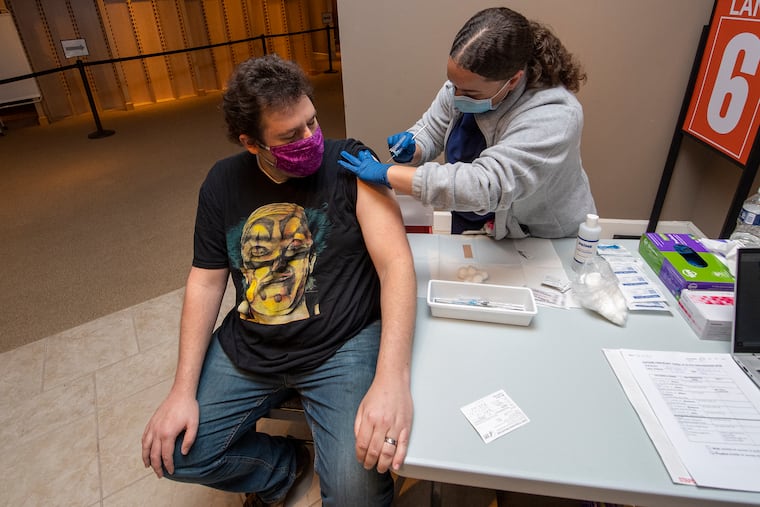First omicron case in Philadelphia detected, but ‘it is not unexpected,’ city says
Officials urged the public not to panic, but the case prompted Philly's top health official to recommend people limit indoor activities.

A Philadelphia man tested positive for the omicron variant of the coronavirus, adding Pennsylvania to the growing list of U.S. states to detect the emerging variant — and prompting the city health commissioner to recommend residents limit indoor socializing and reconsider having indoor holiday gatherings.
“It is not unexpected that we would see omicron here in Philadelphia,” said Health Commissioner Cheryl Bettigole. “This is not like when we first saw COVID cases. We know what works [to protect us], and we’ve been doing a great job doing those things.”
Though the emergence of omicron, which has more mutations than delta or other variants, has shaken the world in the last week, it’s not yet known whether it is more transmissible or causes more severe illness than other strains of the virus.
Still, Bettigole recommended extra precautions in addition to mask-wearing and social distancing: She said people should limit indoor socializing to only vaccinated people and only three households in total; wear two masks or an N95 when in a crowded indoor space; and take a rapid test before visiting indoors with anyone who’s elderly or has chronic health conditions.
“Don’t assume that staying six feet from others indoors or wearing a cloth mask alone will be enough to protect you against omicron,” she said.
Scientists and public health officials have said it will take two or three weeks before they know more about omicron, including whether it causes more severe illness and how well the vaccines protect against it.
There are some early indications that the existing vaccines will provide some protection against it, a World Health Organization scientist said Thursday, but research is ongoing.
Meanwhile, public health officials have strongly encouraged people to get vaccinated. Everyone 5 and older is eligible for the vaccine. All adults are eligible for booster shots two months after getting Johnson & Johnson and six months after getting Pfizer or Moderna.
Maryland, Missouri, and Nebraska also announced their first omicron cases Friday. Others had already been identified in New York, California, Colorado, Hawaii, and Minnesota.
The Philadelphia man’s case was identified by MAKO Medical, a North Carolina-based lab that does nationwide COVID-19 testing.
Philadelphia contact tracers were working on the man’s case, including to find out whether he was vaccinated, said health department spokesperson James Garrow.
» READ MORE: Scientists are waiting to learn more about omicron. In the meantime, be wary of misinformation
Officials have urged the public not to panic, stressing that it’s not yet known whether omicron poses a particular threat. On Friday, hours before the announcement of the case in Philadelphia, Gov. Tom Wolf said during a visit to a vaccine clinic that state officials were monitoring the variant. Meanwhile, the delta variant is still driving the case spread in Pennsylvania and New Jersey.
“We certainly don’t need to panic,” he said. “There’s no reason at this point to do anything different than what we’re doing right now, which is getting the vaccine, to beat that new variant.”
Because detecting the variant’s presence requires genomic sequencing, which takes days to weeks after a a specimen is collected, scientists said omicron was likely already circulating in the United States and just hadn’t been detected. In recent days, labs across the country began looking for omicron.
» READ MORE: Omicron variant is likely to come to Philly region. This Penn lab is on the watch.
“We figured we would see cases of this variant, and the precautions that people need to take are the same ones they need to take to protect themselves from the delta variant,” said Garrow.
“Until the scientists can tell us more about the specifics of this variant, those are the best things that people can do. At the end of the day, we’re still in a pandemic with rising cases, rising hospitalizations, and cold weather coming in.”
Staff writers Erin McCarthy and Tom Avril contributed to this article.